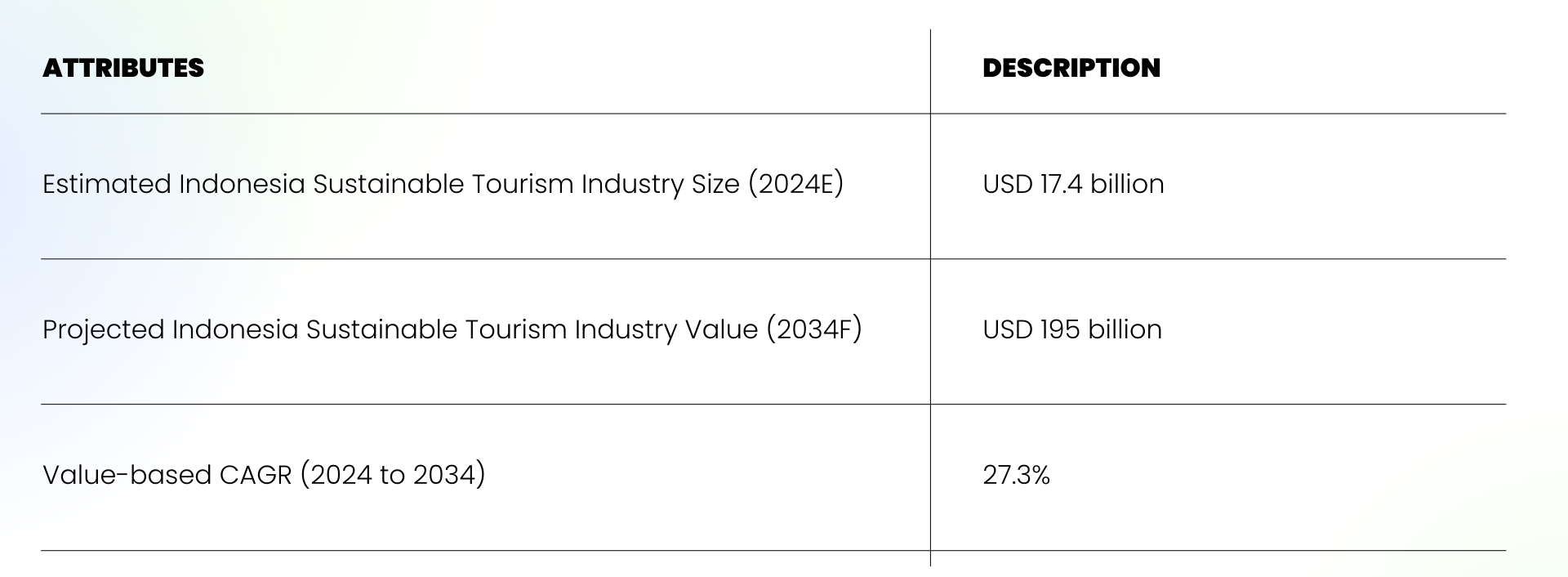
Indonesia Sustainable Tourism Market Growth – Forecast 2024-2034
The Indonesia Sustainable Tourism Market is segmented by eco-tourism and green tourism from 2024 to 2034.
Indonesia Sustainable Tourism Industry Outlook for 2024 to 2034

Indonesia sustainable tourism industry is set to leap forward with a CAGR of 27.3% through 2034. The industry is valued at USD 17.4 billion in 2024, and by 2034, is likely to reach USD 195 billion.
Tourists are slowly turning their focus to eco-friendly experiences with the least environmental impact. Indonesia, with its green rainforests, volcanic mountains, pristine beaches, and coral reefs, is the place that fits perfectly with this eco-tourism trend. The cultural heritage of the country is the prominent factor that makes it a highly sought-after sustainable travel destination.
What further cements Indonesia as the poster child for sustainable tourism are government initiatives for eco-friendly practices and infrastructure. However, this boom is driven by the one occurring throughout Southeast Asia, with millennials representing the most critical target audience.
The young, digitally literate, and connected demographic is particularly concerned with unique experiences and immersion in cultures-values of sustainable tourism at their core. With the rise of disposable incomes within the region, Indonesia's industry is expected to benefit greatly from this burgeoning travel demographic.
Technological advances are playing a transformative role. Online sustainable travel and eco-friendly lodging platforms make it very convenient for tourists to find and book responsible travel experiences in Indonesia.
Such businesses use digital marketing and social media to enable like-minded, eco-conscious travelers to connect with local communities and sustainable tourism operators. This kind of digital integration not only helps the industry amplify its reach but also guarantees transparency and builds trust with potential tourists.
Increasing emphasis on community-based tourism initiatives is another driver for the industry. The industry works to share responsibility for tourism activities that provide local residents with an obvious economic interest and cultural exchange. It therefore empowers local communities and ensures that tourism works for their economic and social gain. This focus on community-based tourism categorizes Indonesia as a forerunner in responsible travel practices, further propelling the country's tourism industry.









